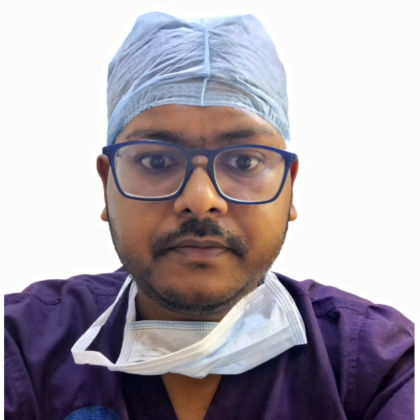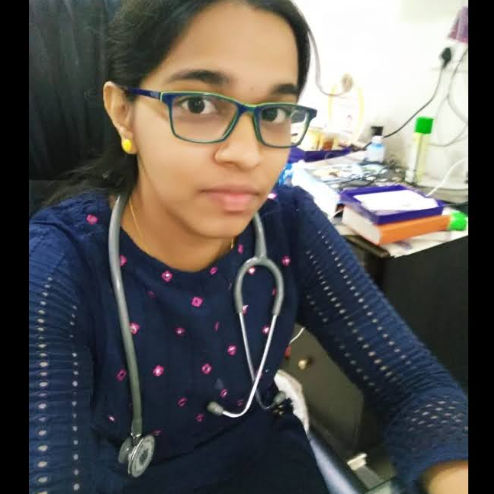Nasal Polyps Detection
Find out about nasal polyps, their causes, symptoms, and how to treat them. Learn why early detection matters and get tips on managing it effectively.

Written by
Last updated on 3rd Jul, 2025
Nasal polyps are soft lumps that can grow inside the passage of the nose or sinuses due to inflammation from allergies or sinus infections. While they are not painful, they can block the nasal passage and make it hard to breathe and smell. These polyps can come in different sizes and sometimes in a cluster. Early detection of nasal polyps means they can be managed better, which helps prevent problems like sinus infections and other discomforts.
Causes of Nasal Polyps
Several factors contribute to the development of nasal polyps, including allergies, genetic predisposition, and underlying health conditions. Here is more on that –
These polyps often come from long-term inflammation, which can be due to allergies like hay fever or ongoing issues like asthma. The constant annoyance from these existing conditions keeps the nose's inside swollen; over time, these swollen bits can turn into polyps.
Genetic predisposition can also make someone susceptible to nasal polyps. For example, having a condition like cystic fibrosis can mean one's body is making too much mucus. It is also possible that some people have genes that inflame their noses.
Other health issues often go along with nasal polyps. Being sensitive to aspirin or having sinus infections that keep coming back can be a part of the problem. It's really important to tackle these other health concerns if one wants to stop new polyps from growing and manage the ones they already have.
Common Symptoms of Nasal Polyps
Nasal polyps result in a continuous sensation of a blocked nose, which can become more troublesome at specific times of the day or with varying weather. This causes issues in breathing, especially when lying down or at night and can disrupt sleep.
Some of the common symptoms of nasal polyps are –
Runny nose
Stuffy nose
Postnasal drip
Facial sinus
Reduces sense of smell
Breathing with the mouth
Consult Top ENT Specialists
Who is at Risk?
Nasal polyps are mostly found in adults 40 years of age and older, but children and young adults can also suffer from them. Genetic reasons play a crucial role in the development of this condition. If parents and siblings have nasal polyps, then one is likely to develop this condition.
Also, people with a history of chronic sinusitis are at a higher risk of developing nasal polyps. When the nasal and sinus areas are inflamed for a long period, the tissues can weaken, making it easier for polyps to grow over time. The constant irritation from these infections is perfect for polyps to form.
Diagnostic Methods for Nasal Polyps
The diagnostics process of nasal polyps starts with a physical exam. A general practitioner (GP) or an ears, nose, and throat (ENT) specialist will spot nasal polyps by having a look up the nose using a special lighted tool. They would see how big these polyps are and where exactly they are situated. They would also check whether any redness or signs of infection surround them.
If needed, a doctor might use a CT scan or MRI to get a better look at one’s nasal and sinus areas. These tests show the polyps and their exact position. This helps the doctor understand how much the polyps have spread and figure out the best way to treat them.
Nasal Endoscopy is another tool for diagnosing nasal polyps. In this procedure, a small, flexible tube with a camera is inserted into the nose. This lets doctors have a good look at any polyps and the bits inside the nose. They can get a sense of where the polyps are and check on the condition of the surrounding areas.
Treatment Options for Nasal Polyps
The treatment options for nasal polyps include –
Medications
Doctors might give the person a steroid nasal spray. The sprays decrease the swelling and shrink the polyps. If the sprays don't work, one might have to take steroid tablets for a while to control the swelling.
Therapies
For really bad or long-term cases, doctors can suggest therapies like dupilumab. It targets specific inflammatory pathways and is used for patients with chronic conditions. Also, regular rinsing with saline solution helps clear allergens, irritants, and excess mucus, improving nasal health and reducing symptoms.
Surgeries
If medications and therapies fail to provide relief, doctors recommend surgeries to cure the condition. Polypectomy, a minimally invasive procedure, is mostly used for nasal polyps. But doctors also use endoscopic sinus surgery for severe conditions.
Lifestyle and Home Remedies
Keeping the nasal passages moist is important, as dry air can make things worse and make breathing harder. Having a humidifier at home that keeps the air moist can help with this condition.
Also, common allergens like pollen, dust mites, animal hair, and mould can make this condition worse by causing swelling. Therefore, individuals suffering from this condition should keep their houses tidy and refrain from visiting places where dust particles and pollen are prevalent in the air.
Complications Linked with Nasal Polyps
Nasal polyps, if left untreated, can lead to several complications affecting sinus and respiratory health. These complications arise due to persistent inflammation, obstruction of the nasal passages, and the body's immune response to chronic irritation. Some of the key issues include:
Nasal obstruction
Disturbance with the sleep
Worsening of asthma
Nasal polyps can also contribute to recurrent or chronic sinus infections (chronic sinusitis) due to blocked sinuses and impaired mucus drainage. These infections can make the nose swell and produce even more mucus, making it harder to breathe through the nose for longer periods.
Prognosis and Follow-Up Care
Nasal polyps can keep coming back, especially if someone has ongoing inflammation or conditions like allergic rhinitis. They might reoccur because of factors that don't go away, like allergies or sinus infections that last a long time. Therefore, it's important to manage them well and catch them early. Regular appointments with a specialist can help keep a close eye on the inside of the nose and spot any new ones.
So, it is really important to keep visiting an ENT specialist even after one has had treatment for nasal polyps. This is because they can spot new growths and start treating them before they cause trouble again. These visits also mean one's doctor can see if their previous treatment is working and advise them on lifestyle changes or medicines.
Conclusion
Nasal polyps, though not dangerous, can significantly impact the breathing, sleep, and overall well-being of the affected individuals. Therefore, it is possible to manage symptoms effectively with early diagnosis and proper treatment, including medications, therapies, or surgery. Regular follow-ups with an ENT specialist and lifestyle adjustments can further prevent recurrence, ensuring better nasal health and improved quality of life. Proactive care is the key to long-term relief from nasal polyps.
Consult Top ENT Specialists
Consult Top ENT Specialists
Dr. Shalu Sharma
Ent Specialist
14 Years • MBBS, DLO, DNB (ENT)
Delhi
Salus Advanced ENT Care, Delhi

Dr. Sourav Banerjee
Ent Specialist
5 Years • MBBS, MS (Otorihnolaryngology)
New Delhi
THE DOCTORS NESST, New Delhi

Dr. M Venkata Apparao
Ent Specialist
25 Years • MBBS MS
Visakhapatnam
Apparao ENT CLINIC, Visakhapatnam

Dr. Krishan Rajbhar
Ent Specialist
8 Years • MBBS, MS(ENT), Fellowship in Neurotology Fellowship in Middle Ear Surgery & Cochlear Implant, Fellowship in Allergy & Asthma
Kolkata
Dr. Krishan Rajbhar's Clinic, Kolkata
(150+ Patients)

Dr. Nirupama Reddy
Ent Specialist
5 Years • MBBS, MS (Oto Rhino Laryngology)
Hyderabad
Nirupama clinic, Hyderabad
Consult Top ENT Specialists
Dr. Shalu Sharma
Ent Specialist
14 Years • MBBS, DLO, DNB (ENT)
Delhi
Salus Advanced ENT Care, Delhi

Dr. Sourav Banerjee
Ent Specialist
5 Years • MBBS, MS (Otorihnolaryngology)
New Delhi
THE DOCTORS NESST, New Delhi

Dr. M Venkata Apparao
Ent Specialist
25 Years • MBBS MS
Visakhapatnam
Apparao ENT CLINIC, Visakhapatnam

Dr. Krishan Rajbhar
Ent Specialist
8 Years • MBBS, MS(ENT), Fellowship in Neurotology Fellowship in Middle Ear Surgery & Cochlear Implant, Fellowship in Allergy & Asthma
Kolkata
Dr. Krishan Rajbhar's Clinic, Kolkata
(150+ Patients)

Dr. Nirupama Reddy
Ent Specialist
5 Years • MBBS, MS (Oto Rhino Laryngology)
Hyderabad
Nirupama clinic, Hyderabad
